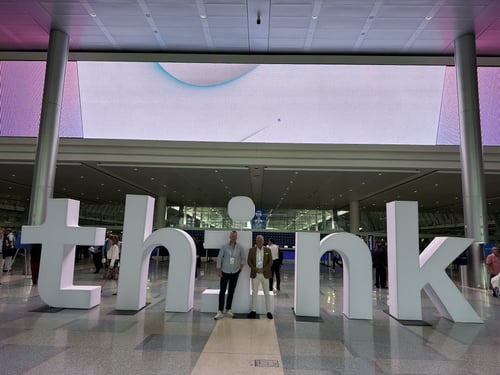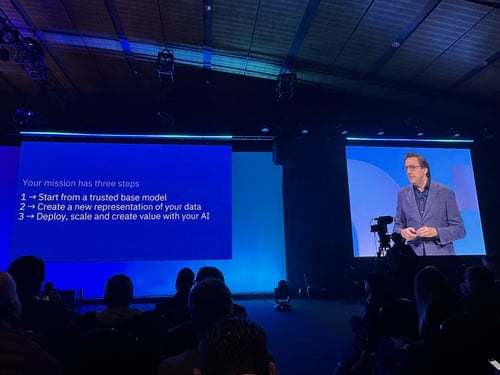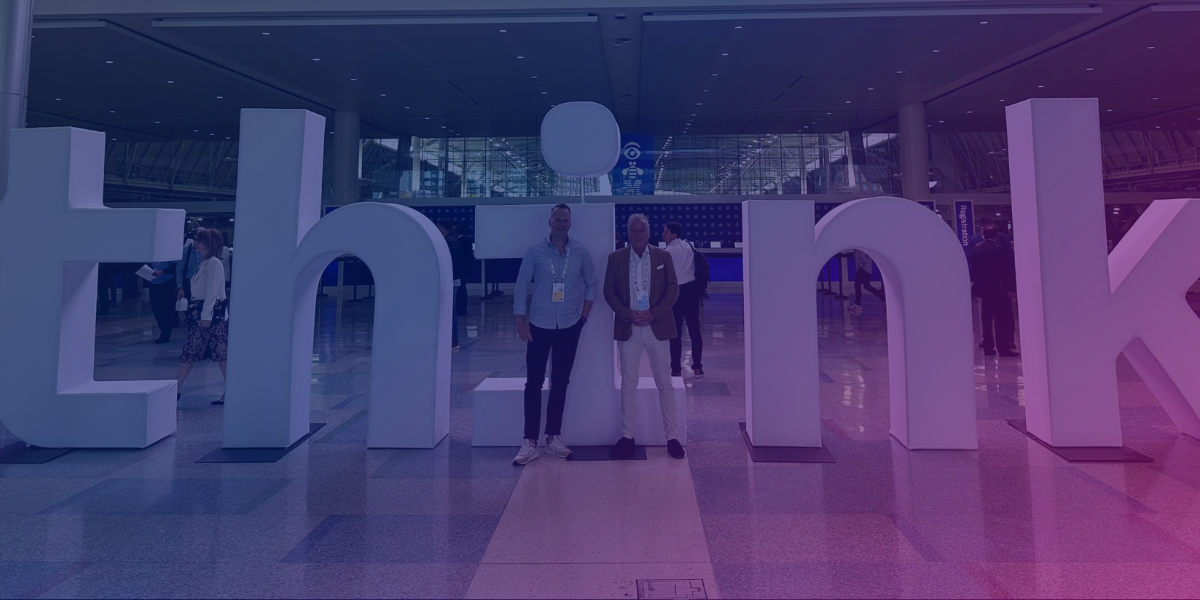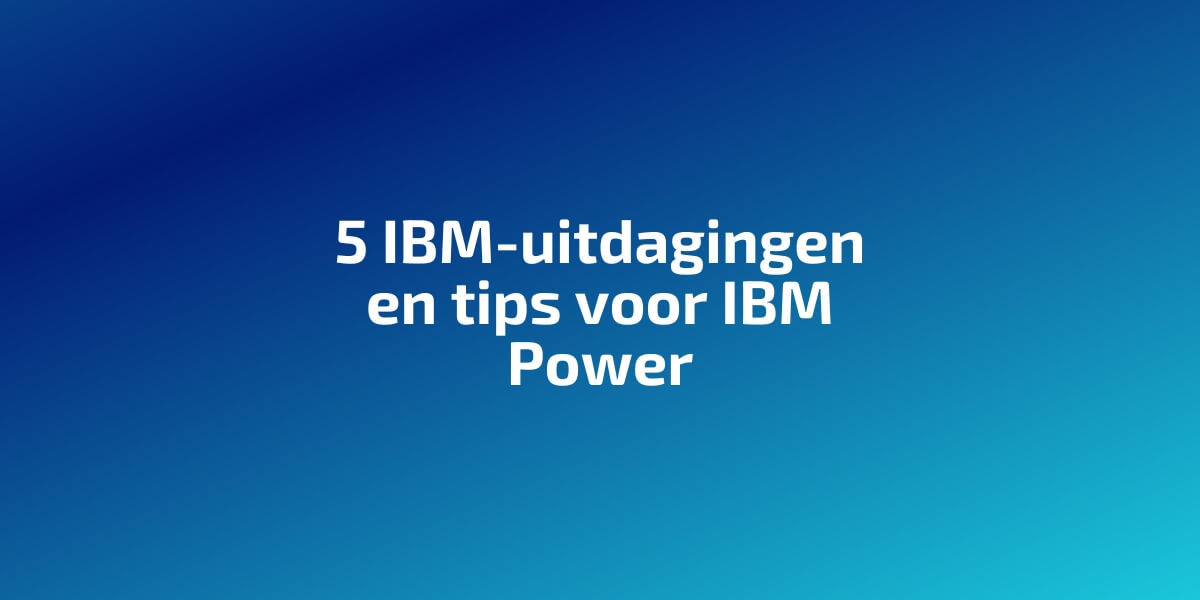This May, I had the privilege of attending IBM Think 2024 in Boston, a thrilling event packed with innovations and discussions on the future of technology. As part of conference season for tech companies, my journey to IBM’s flagship annual event was undoubtedly worthwhile.
Having joined many IBM Think conferences throughout my career, this year stood out with a strong focus on artificial intelligence (AI) of course. The keynotes highlighted AI’s transformative impact on productivity and innovation across industries, marking a significant milestone as generative AI, like ChatGPT, becomes omnipresent in our digital lives and everyday business operations.

TL;DR: AI + Hybrid Cloud + IBM Concert
IBM’s announcements during THINK 2024 include significant updates to IBM's AI & Data portfolio (watsonx.ai, etc.), featuring open-source LLMs (Red Hat OpenShift AI and Red Hat Enterprise Linux AI) and the debut of IBM Concert. These advancements aim to enhance AI capabilities, integrate hybrid cloud solutions, and streamline workflow orchestration for businesses.

Opening Keynote
In his opening keynote, CEO Arvind Krishna highlighted Technology Atlas, a concept IBM introduced last year that looks at the multi-year confluence of hybrid cloud, artificial intelligence, quantum computing, automation, data and security through the lens of six technology roadmaps. These technologies are reaching a point where they can impact business by boosting productivity through automation, innovation and scale in a way that we couldn’t have imagined a few decades ago, or in some cases even a few years ago.
IBM Concert
No tech conference is complete without a few product announcements. Starting with the biggest update: a new Expansion Of IBM’s Automation Portfolio, called 'IBM Concert'.

IBM has launched IBM Concert, a generative AI-powered platform designed to help customers manage operations and streamline compliance processes. With the anticipated growth of cloud-native apps to over a billion by 2028, IBM Concert addresses the complexity and data management challenges of this expanding ecosystem. Powered by AI from watsonx, IBM Concert can generate analyses, visualizations, and recommendations, helping users discover gaps, reduce complexity, streamline operations, boost resiliency, and control costs. While mostly targeted to Enterprises, this tool enables IT leaders to focus on enhancing applications rather than just managing them, driving innovation and business value. That sounds like music to my ears! Try it now, IBM Concert is generally available through TTNL.

Unlock the Power of Open AI
In this Keynote by Dr. Darío Gil, (Senior Vice President and Director of Research at IBM) it was made clear that the ‘era of AI-driven value creation’ emphasizes the importance of a robust ecosystem. Enterprises integrating generative AI into their workflows face challenges like high inferencing costs, trustworthiness, energy efficiency, portability, and secure data usage. Overcoming these requires innovation and a strategic approach that leverages an open, collaborative AI community. Poking just a little bit at OpenAI (the company behind ChatGPT, and it's internal troubles), IBM is committed to show the latest technologies available for scaling enterprise AI and implementing a successful AI for business strategy.
Red Hat OpenShift AI and Red Hat Enterprise Linux AI
Next to IBM’s watsonx platform, IBM has two other trump cards in its portfolio. Earlier in May, at its ‘Connect Summit’ in Denver, Red Hat announced the launch of Enterprise Linux AI (RHEL AI), a foundation model platform that enables users to seamlessly develop, test and deploy generative AI (GenAI) models. RHEL AI brings together two important ingredients: the open source “Granite” large language model (LLM) family from IBM Research. Secondly, a Red Hat – IBM Baby called ‘InstructLab’, a first-of-its-kind model alignment technique, to bring open-source community contributions directly into LLMs – a very cool development in my opinion.

The entire solution is packaged as an optimized, bootable RHEL image for individual server deployments across the hybrid cloud and is also included as part of OpenShift AI, Red Hat’s hybrid machine learning operations (MLOps) platform, for running models and InstructLab at scale across distributed cluster environments.
- RHEL AI: Run your own LLM on a single Linux CPU / Single laptop
- OpenShift AI: run many cores AI simultaneously
- watsonx: embed AI in applications
Scaling Your Business with AI and Hybrid Cloud
The widespread adoption of generative AI is accelerating as businesses move from experimentation to full-scale deployment to enhance productivity and innovation. Key areas of focus include reinventing customer service, modernizing code, and automating workflows. Success hinges on a secure, compliant, and open technology architecture, built on a hybrid-by-design cloud infrastructure, that supports AI model scalability across various IT environments. The right combination of advanced technologies and expertise is essential for creating unique business value from AI today.
IBM AI and Data Platform
During IBM THINK 2024, some more exciting updates were announced for the IBM AI & Data portfolio, designed to help businesses unlock the full potential of AI. Let me focus on the underexposed of the 3 that make up the IBM AI and Data platform family (watsonx.ai, .data, .governance)(pronounce as dot data, dot ai, etc) announced last year at THINK 2023 in Orlando: dot governance.
watsonx.governance: Ensuring Compliance and Ethical AI
Organizations in the European Union have to prepare for loads of new regulations, like NIS2, DORA, CSR Directive and the EU AI Act: Europe’s first regulation on artificial intelligence.
Watsonx.governance facilitates compliance with the EU AI Act by providing robust tools and frameworks for ethical AI practices. It enables organizations to audit and monitor AI systems, ensuring transparency and accountability in data processing and AI decision-making. Watsonx.governance helps mitigate biases in AI models, aligning with the AI Act's requirements for “non-discriminatory and fair AI applications”. It supports data privacy by implementing measures to protect personal data, aligned to data protection standards. Simply put, helping to navigate the regulatory landscape of the EU AI Act effectively, and helping to create an ‘ethical AI’.
Side Notes
Apart from the well-attended keynotes, there is also the expo and more breakout sessions one can attend in a single week. I joined a roundtable with Bloomberg and took an interesting hands-on demo on IBM Watson Orchestrate; you can check it out yourself here: https://www.ibm.com/products/watsonx-orchestrate/demos.

Also the acquisition of HashiCorp (a leading multi-cloud infrastructure automation company) and its place in the IBM Automation portfolio was briefly discussed. Some new additions to IBM Power Virtual Server in IBM Cloud and successful uses of IBM Quantum technology in academia. For me, this is also the time of year to catch up with IBM executives and other members of the IBM Ecosystem (Business Partners, Distributors, Cloud Aggregators and alike). Luckily there was also some time to explore the city of Boston, Fenway Park and Harvard University.

Recap: IBM Think 2024: AI for business drives innovation
As always, IBM Think was a worthwhile and exciting experience. This 2024 editions of Big Blue’s annual tech conference highlighted how AI is driving innovation and efficiency across different industries. Key moments included the launch of IBM Concert, which helps businesses use AI to streamline operations and meet regulations more easily. Also, IBM introduced Red Hat OpenShift AI and Red Hat Enterprise Linux AI, showing their commitment to open-source AI solutions that encourage teamwork and growth. As more companies adopt AI and hybrid cloud technologies, IBM's advancements promise even more progress and responsible AI use, especially with new regulations like the EU AI Act on the horizon.
With so much potential, mostly around AI, there’s much to look forward to. See you next year, back in the beautiful city of Boston.


%20(72).png)

.png)